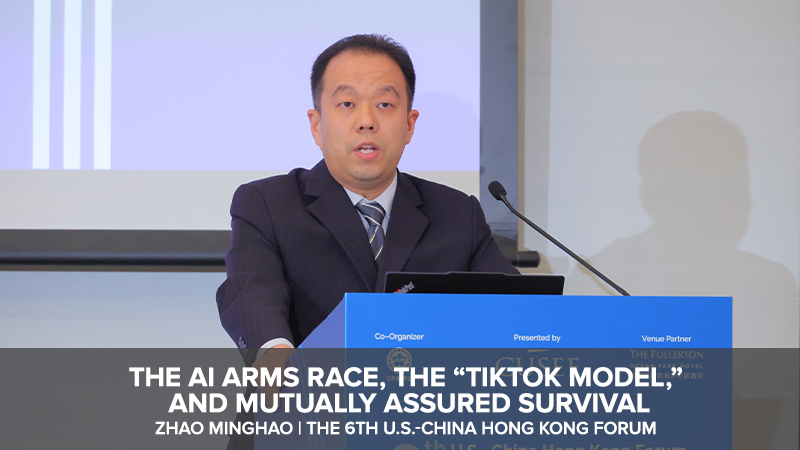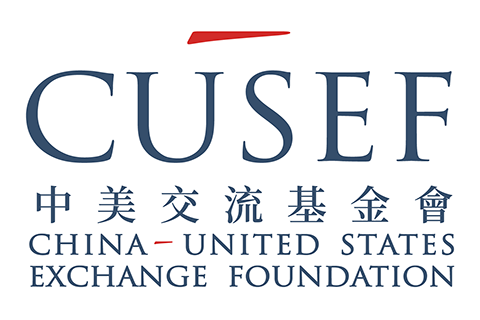
Dear Focus reader,
U.S. Secretary of State Marco Rubio met Chinese Foreign Minister Wang Yi on the sidelines of the 62nd Munich Security Conference today — at least the second in-person encounter between the two — as both governments attempt to stabilize the relationship ahead of a possible Trump-Xi meeting in Beijing in early April.
Rubio raised concerns over China's support for Russia's defense industrial base, tensions in the South China Sea, and continued military pressure on Taiwan. He reiterated that Washington seeks "responsibly managed competition" and open channels of communication, while emphasizing that U.S. commitments to allies in the Indo-Pacific remain firm.
China's Foreign Ministry described the meeting as "frank and in-depth," with Wang warning that the United States must "stop containing and suppressing China's development" and "handle the Taiwan question prudently." He also reiterated that China views the relationship as entering a "critical period," urging Washington to meet China "halfway."
Both sides signaled interest in keeping communication channels open, including between defense officials, amid renewed friction over nuclear and arms control issues. The expiration of New START on February 5 has added urgency to discussions in Munich about strategic stability, with Washington advocating for a broader framework that includes China.
Meanwhile, Beijing has also pushed back more broadly on U.S. nuclear policy. Chinese officials have reiterated China's longstanding "no first use" doctrine and argued that Washington, not Beijing, bears primary responsibility for restarting arms control talks given the size of the U.S. arsenal.
Learn more on China-U.S. relations by exploring our latest Focus content, including topics on AI competition, global politics, and more.
Focus This Week will break next week for Spring Festival. Happy Chinese New Year!
The share of active global sanctions regimes now imposed unilaterally by the United States—up from 38% during the Cold War, as UN-mandated sanctions have fallen to near zero.
Learn more in "From the U.S.-Led Rules-Based Order to Multipolar International Law" by Dan Steinbock.
Hong Kong Nature| Kyle Obermann
Watch VideoHong Kong has pythons?! "Asia's World City" has so much more than skyscrapers: cloud-piercing summits, ancient Feng Shui forests, coral reefs, pristine beaches, endangered species, and more. In this episode of The China Current, contributor Kyle Obermann explores how wild landscapes and vertical cityscapes intertwine, revealing a side of Hong Kong that makes it unlike anywhere else on Earth.
In our Focus Insights section, we featured an article by Tobias Bunde and Sophie Eisentraut of the Munich Security Conference examining the rise of "wrecking-ball politics" and the growing public disillusionment fueling efforts to dismantle liberal institutions at home and abroad.
We want to hear from you!
Can "creative destruction" revitalize the global order, or will it accelerate a shift toward transactional, great-power politics?
Submit your thoughts to USeditor@chinausfocus.com for a chance to be featured in next week's Focus This Week.
useditor@chinausfocus.com for more info.
Prepared by China-US Focus editorial teams in Hong Kong and New York, this weekly newsletter offers you snap shots of latest trends and developments emerging from China and the U.S. every week. It is a community space to exchange thoughts and ideas about the China-U.S. relationship and beyond.
- 2026-02-06 Focus This Week: The Telephone Hour
- 2026-01-30 Focus This Week: Balancing Acts
- 2026-01-23 Focus This Week: Delicate Equilibrium
- 2026-01-16 Focus This Week: Trade Winds
- 2026-01-09 Focus This Week: Sovereignty at Stake
- 2025-12-19 Focus This Week: Between the Lines
- 2025-12-12 Focus This Week: Strategic Realignments
- 2025-12-05 Focus This Week: Cooperation on Track
- 2025-11-21 Focus This Week: Dialogue Forward
- 2025-11-15 Focus This Week: Seeking Peace
- 2025-11-07 Focus This Week: Beyond Busan
- 2025-10-31 Focus This Week: A "12 out of 10" Meeting
- 2025-10-24 Focus This Week: Staying "On Track"
- 2025-10-17 Focus This Week: Trade Strains, Policy Plans
- 2025-10-10 Focus This Week: Tariff Tensions, Rattled Markets
- 2025-10-03 Focus This Week: Shutdown Diplomacy
- 2025-09-26 Focus This Week: Turning Up the Heat
- 2025-09-19 Focus This Week: TikTok on the Table




